2021 Bertha Challenge Investigative Journalist
Fellows
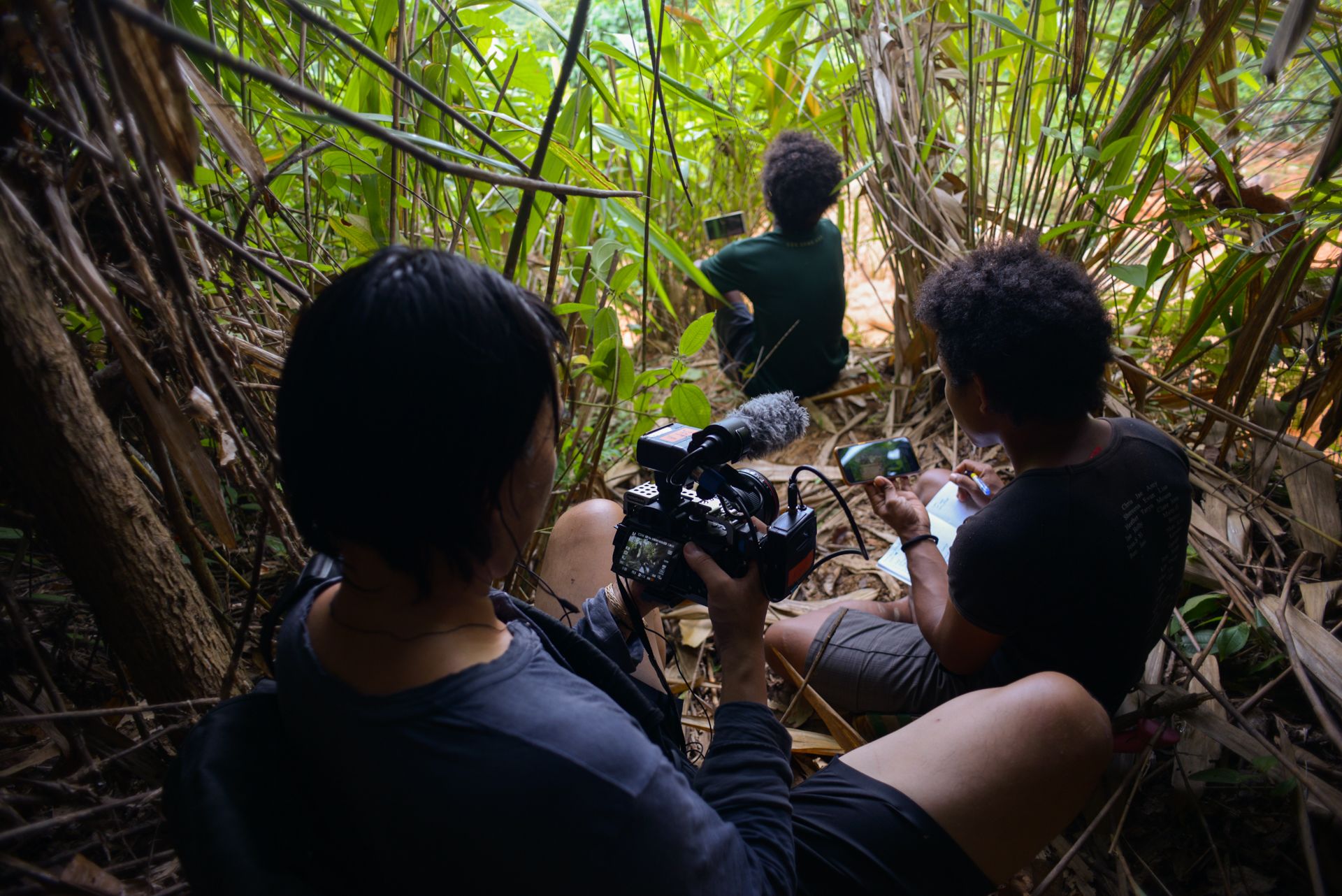
Abiose Adelaja Adams
Location: Nigeria
Host Organization: The Cable
Abiose works at the Cable Newspaper Journalism Foundation, where she coordinates a program that focuses on using the tool of investigative reporting for accountability and transparency. As a recipient of the Red Ribbon Award, and a fellow of the World Federation of Science Journalists, she has been at the forefront of reporting on science and development issues.
During her Fellowship year, Abiose published a series of articles and video reports about the social and economic failures that have contributed to the environmental degradation of the Niger Delta region. She visited illegal oil refineries, stalled oil-spill clean-ups and gas flare sites, to show the extent that communities have been affected by oil extraction in the region.
Abiose used these experiences from her investigations to write and stage a play in Ogoniland, in the Niger Delta in an attempt to reach a wider audience. The play, Environmental Refugees, confronted issues such as the lack of drinking water, lack of secure employment and health problems caused by oil extraction in Ogoni and other oil-rich areas. It was attended by over 300 residents from 17 local communities and was so well-received, a production company is talking to her about turning her play into a feature film.
Article: ‘Ogoniland residents demand quick action on N6.4bn water projects’ [May 2021]
Article: ‘How Delta women use heat from gas flaring sites to dry tapioca’ [March 2021]
Video: ‘Abandoned Garri factory in Ogoni land’ [Februarys 2021]
Article: ‘Nigeria spends millions cleaning oil spills — but illegal refiners are still in business’ [February 2021]
Article: ‘Inside Niger Delta creeks where the youth are raking in millions through crude oil theft’ [December 2020]
Article: ‘Unpaid salaries, communal conflict slowing down Ogoni clean-up exercise’ [October 2020]
Article: ‘Poisonous water still sending Ogoni residents to early graves — despite clean-up promise’ [September 2020]
Article: ‘Interview: ‘Clean-up is a cover-up’ — Ledum Mitee, Ogoni activist, speaks on the Niger Delta struggle’ [September 2020]
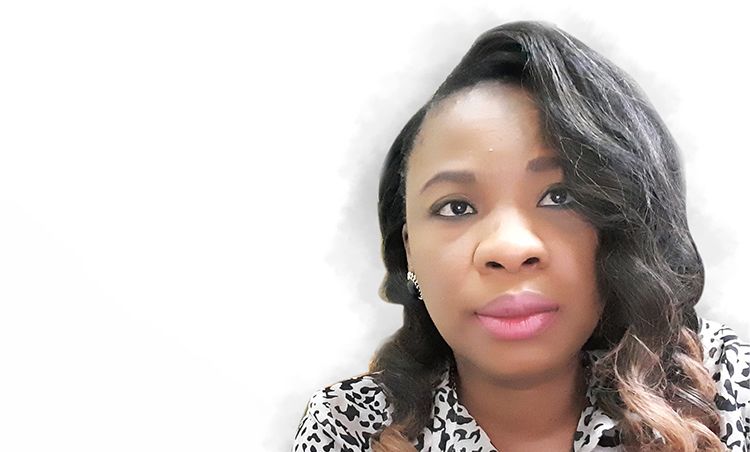
Yasna Carolina Mussa Valenzuela
Location: Chile
Host Organization: Late Magazine
Yasna is a freelance Chilean reporter, based in Santiago de Chile. For a decade she has worked as an international correspondent for various written and radio media, reporting from Europe, Asia and the Middle East. Her work has been published in La Tercera (Chile), The New York Times, Vice (Mexico) and Mediapart (France). She is co-founder of Late Magazine, where she is currently working as Editor and mediambiente.cl, a site committed to climate change.
During her Bertha Challenge project, Yasna worked with Juan Donoso (activist Fellow), to investigate the extraction of lithium from the ‘lithium triangle’ covering Chile, Argentina and Bolivia for electric cars marketed in Europe. Yasna visited sites of lithium mining to explore how the mining is affecting local ecosystems and communities, including the Atacama salt plains, home to one of the largest lithium mines in South America.
Website: The Lithium Triangle
Article: Lithium’s Grays [February 2021]
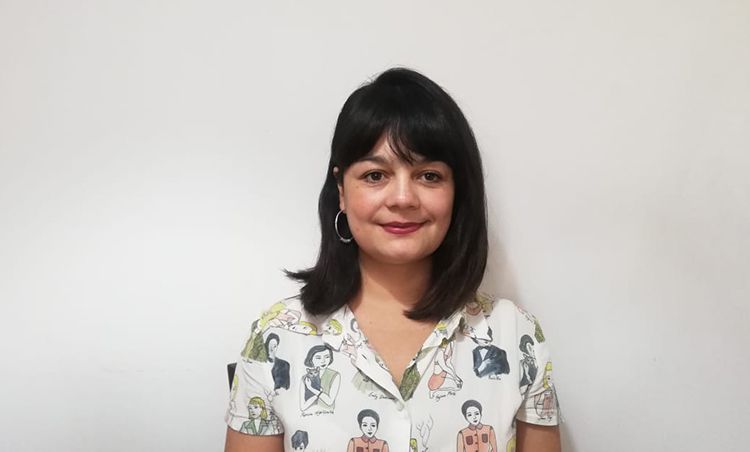
Dan Ilic
Location: Australia
Host Organization: A Rational Fear
Dan is one of Australia’s most prolific comedy filmmakers and radio journalists. Calling himself an “investigative humorist”, Dan has used comedy as an activist tool throughout his professional career in Australia and the U.S. He has performed in front of thousands of people across Australia, including sell out shows at the Sydney Opera House and on ABC Radio National.
Dan is the host of the award-winning podcast and live comedy show, A Rational Fear - a show that brings together journalists, comedians, experts and politicians and uses comedy to talk about climate issues that get overlooked in mainstream media. During his Bertha Challenge year, he used this weekly podcast to engage new audiences with the climate crisis through comedy. He launched a monthly climate focused podcast, Greatest Moral Podcast of Our Generation, which was co-hosted by Linh Do (activist Fellow) (link).
Dan’s Fellowship year culminated with live shows in two of Australia’s climate-vulnerable cities: Newcastle, a traditional mining area and home to Australia’s largest coal mines; and Bega, one of the areas worst hit by the 2020 bushfires, where promised emergency funds still haven’t been delivered.
Podcast: A Rational Fear, 10 July 2020
Podcast: A Rational Fear, 31 July 2020
Podcast: A Rational Fear, 7 August 2020
Podcast: A Rational Fear, 14 August 2020
Podcast: A Rational Fear, 21 August 2020
Podcast: A Rational Fear, 28 August 2020
Podcast: A Rational Fear, 4 September 2020
Podcast: A Rational Fear, 11 September 2020
Podcast: Greatest Moral Podcast of Our Generation, 13 September 2020
Podcast: A Rational Fear, 18 September 2020
Podcast: A Rational Fear, 25 September 2020
Podcast: A Rational Fear, 1 October 2020
Podcast: Greatest Moral Podcast of Our Generation, 9 October 2020
Podcast: A Rational Fear, 22 October 2020
Podcast: A Rational Fear, 30 October 2020
Podcast: A Rational Fear, 6 November 2020
Podcast: Greatest Moral Podcast of Our Generation, 12 November 2020
Podcast: A Rational Fear, 20 November 2020
Podcast: A Rational Fear, 27 November 2020
Podcast: A Rational Fear, 4 December 2020
Podcast: A Rational Fear, 11 December 2020
Podcast: Greatest Moral Podcast of Our Generation, 17 December 2020
Podcast: A Rational Fear, 22 December 2020
Podcast: A Rational Fear, 22 January 2021
Podcast: A Rational Fear, 29 January 2021
Podcast: A Rational Fear, 5 February 2021
Podcast: A Rational Fear, 11 February 2021
Podcast: A Rational Fear, 26 February 2021
Podcast: A Rational Fear, 5 March 2021
Podcast: A Rational Fear, 12 March 2021
Podcast: Greatest Moral Podcast of Our Generation, 14 March 2021
Podcast: A Rational Fear, 19 March 2021
Podcast: A Rational Fear, 26 March 2021
Podcast: A Rational Fear, 2 April 2021
Podcast: A Rational Fear, 14 April 2021
Podcast: Greatest Moral Podcast of Our Generation, 23 April 2021
Podcast: A Rational Fear, 30 April 2021
Podcast: A Rational Fear, 14 May 2021
Podcast: A Rational Fear, 21 May 2021
Podcast: Greatest Moral Podcast of Our Generation, 28 May 2021
Podcast: A Rational Fear, 4 June 2021
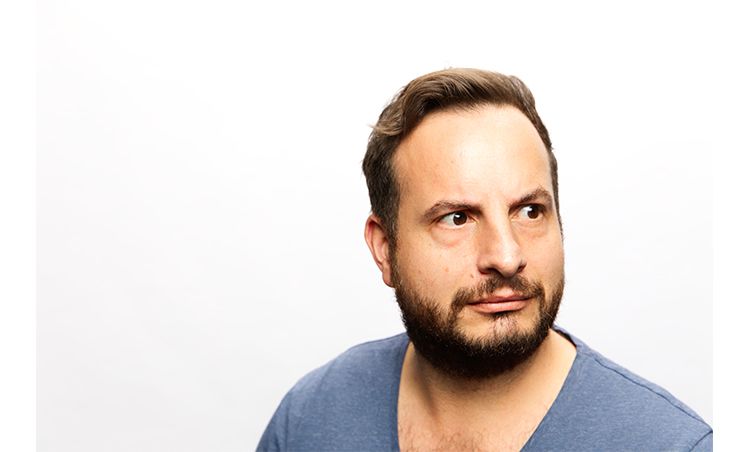
Andrea Isabel Ixchiú Hernández
Location: Guatemala
Host Organization: Federación Guatemalteca de Escuelas Radiofónicas (FGER)
Andrea is a journalist, human rights activist and defender of the territory. She is a Nobel Women’s Initiative Fellow and was awarded the Sakharov Prize Fellowship, which honors individuals and groups of people who have dedicated their lives to the defense of human rights and freedom of thought. Andrea has also been an Indigenous authority in her hometown of Totonicapán.
During her Bertha Challenge Fellowship, Andrea worked with Federico Etiene Zuvire Cruz (activist Fellow) to share three stories of resistance told by women. Their work focuses on the intersection of organized women, Indigenous rights and territory with an emphasis on water, land and governance.
Along with the three films, Andrea and Fede also organized ‘Curra da Terra’, an online gathering of more than 267 Indigenous women from 116 Indigenous nations in 37 different countries. The event called on Indigenous women from around the world to share their experiences of resisting profit-driven destruction of Indigenous territories, and the violence that accompanies it.
Website: Cura da Terra
Film: ‘#CuraDaTerra Thelma Cabrera: curar el territorio’
Film: ‘#CuraDaTerra Maria Choc: curar el cuerpo’
Film: ‘#CuraDaTerra Maggie García: curar el espíritu’
Podcast: ‘#CuraDaTerra Thelma Cabrera: cure of the territory in times of climate crisis’ (English) [October 2021]
Podcast: ‘#CuraDaTerra Thelma Cabrera: curar el territorio’ (Spanish) [October 2021]
Podcast: ‘#CuraDaTerra Maria Choc: cure the body in times of climate crisis’ (English) [October 2021]
Podcast: ‘#CuraDaTerra Maria Choc: curar el cuerpo’ (Spanish) [October 2021]
Podcast: ‘#CuraDaTerra Maggie García: cure the spirit in times of climate crisis’ (English) [October 2021]
Podcast: ‘#CuraDaTerra Maggie García: curar el espíritu’ (Spanish) [October 2021]
Webinar: ‘The Future is a Territory We Must Defend’ (September 2021)
Report: ‘The Future is a Territory We Must Defend’
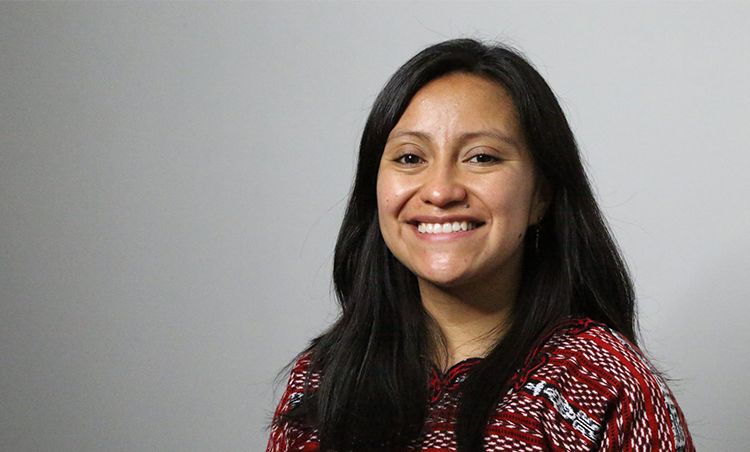
Antonia Juhasz
Location: United States of America
Host Organization: Democracy Now!
Antonia Juhasz is an energy analyst, author and investigative journalist specializing in oil. Her investigations include the BP Deepwater Horizon disaster in the U.S. Gulf of Mexico, oil exploitation in the Ecuadorian Amazon, the Paris Climate Accord, the role of oil and natural gas in the Afghanistan war and resistance movements from Standing Rock to the Norwegian Arctic. Her articles and opinion pieces appear in numerous leading magazines and newspapers. Antonia is the author of three books: Black Tide: The Devastating Impact of the Gulf Oil Spill, The Tyranny of Oil and The Bush Agenda.
For her Bertha Challenge project, Antonia published a series of articles analyzing the state of the oil industry through a critical period that included the COVID-19 pandemic and the 2020 U.S. election. She focused on groups that are challenging the power of oil companies, and the role of women and girls in leading those movements.
Article: ‘Exxon’s oil drilling gamble off Guyana coast ‘poses major environmental risk’ [August 2021]
Article: ‘A Court Ruled Shell Is Liable for Its Contributions to Climate Change. What Happens Now?’ [May 2021]
Radio: ‘(Un)Covering Oil: From Capitol Hill Riots to the Necessity of Environmental Justice, the Final Episode’ [January 2021]
Article: ‘How Women and Girls are Ending the Fossil Fuel Era’ [October 2020]
Video: ‘The End of Oil? Pandemic Adds to Fossil Fuel Glut, But COVID-19 Relief Money Flows to Oil Industry’ [September 2020]
Article: ’Bailout: Billions of Dollars of Federal COVID-19 Relief Money Flow to the Oil Industry’ [August 2020]
Article: ‘The End of Oil Is Near’ [August 2020]
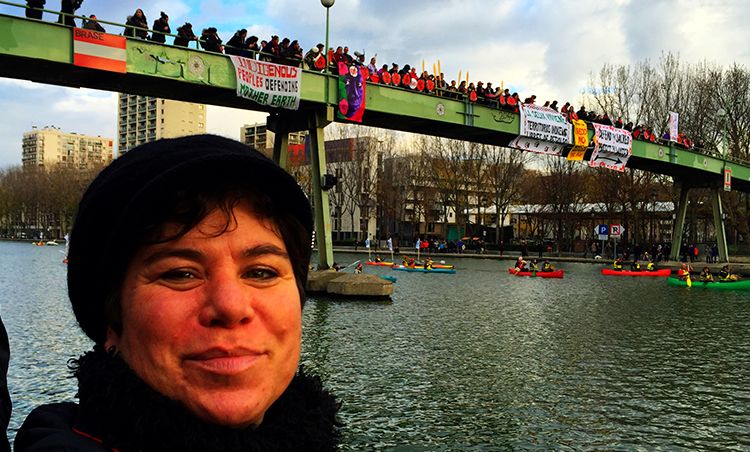
Michael Owen Snyder
Location: United States of America
Host Organization: Blue Earth Alliance
Mike is a photographer, filmmaker and environmental scientist who uses his knowledge of visual storytelling and conservation to create narratives that drive social change. He holds an MSc in Environmental Sustainability from the University of Edinburgh, Scotland. He has directed award-winning films in the Arctic, the Amazon, the Himalayas and East Africa. His work has been featured by National Geographic, The Guardian, Vox, the BBC and others.
For his Bertha Challenge project, Mike spent a month travelling around Chesapeake Bay, photographing and interviewing residents. The Bay is the U.S.’s largest estuary, and an important wetland habitat, facing rising sea levels that threaten the homes and infrastructure of local communities.
Mike used blue tape to physically mark where the coastline is expected to reach by 2100. His photos show the projected coastline cutting across play areas, roads and houses. He also took portraits of local residents standing in places of personal significance with a measurement stick showing how high the water is expected to rise in that location. The portraits are accompanied by interviews with people talking about the importance of the area and about the future of Chesapeake Bay.
Alongside these photos, Mike also produced aerial images showing how much land will be lost by the end of the century if nothing is done to address climate change, compared to how much land will be lost if immediate and radical action is taken.
Website: The Coming Coast (portfolio of photos)
Article: ‘This Ecologist Thinks Coastal Wetlands Can Outrun Rising Seas. Not Everyone’s Convinced.’ [June 2021]
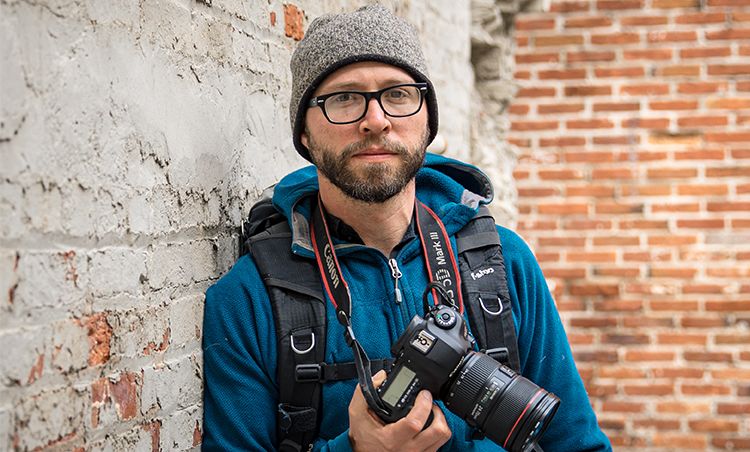
Bhrikuti Rai
Location: Nepal
Host Organization: Centre for Investigative Journalism, Nepal
Bhrikuti is a multimedia journalist based in Kathmandu. During her decade-long career, she has reported extensively on environment, technology and human rights. Bhrikuti loves all things audio, and is co-creator of the feminist podcast Boju Bajai, which she started in 2016 with poet Itisha Giri. Her work has appeared in several Nepali and international media, including The Kathmandu Post, Nepali Times, The Guardian, Los Angeles Times and Buzzfeed News. In 2017, she won a Fulbright scholarship to pursue a Masters degree at Columbia University in New York, where she specialized in investigative journalism.
Bhrikuti used her Bertha Challenge Fellowship to investigate the extent of the ecological damage caused by illegal sand extraction from rivers across Nepal, and its impact on the most vulnerable communities. She investigated the collusion between business and politics, in particular connections between politicians with influence over Nepal’s ecological legislation, and the sand extraction and construction industries. Alongside her investigative stories, Bhrikuti developed a public database with records of Nepal’s public officials and their business interests.
Website: Searchable database of public officials and their business interests
Article: ‘Conservation in Chure takes a back seat’ [June 2021]
Article: ‘Environment, the biggest loser in Nepal’s expensive elections’ [June 2021]
Article: ‘A decade of environmental plunder’ [June 2021]
Article: ‘Environment conservation takes a back seat in the budget’ [May 2021]
Article: ‘Permit to plunder: How the environment is paying the price for Nepal local governments’ greed’ [April 2021]
Article: ‘Nepal breathes uneasy’ [April 2021]
Article: ‘Drawing a line in the sand: Part Two’ [January 2021]
Article: ‘Drawing a line in the sand: Part One’ [January 2021]
Article: ‘Across Nepal’s mid-hills, unplanned roads are leading to more landslides - and more deaths’ [November 2020]
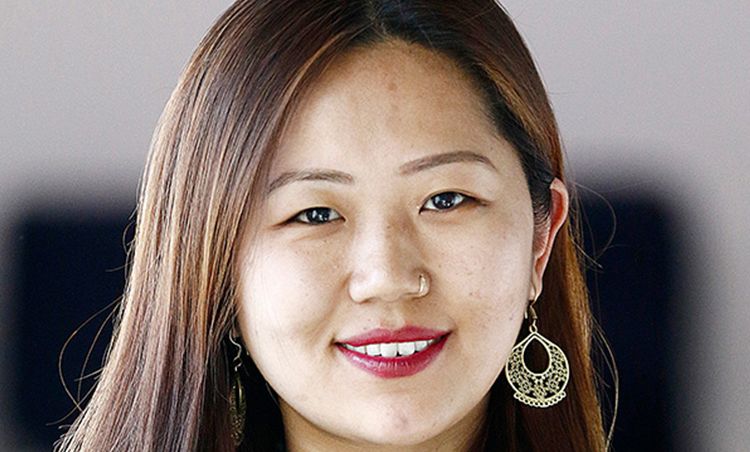
Charles Saki
Location: Zimbabwe
Host Organization: Community Radio Harare
Charles is a Zimbabwean journalist and freedom of expression activist. He has a keen interest in community centric investigative journalism, with a particular focus on social justice and environmental management issues. In 2010, he was one of the founding employees of the Media Centre in Harare, where he was instrumental in establishing a resource centre for freelance journalists and promoting citizen journalism in communities across Zimbabwe. Charles is a Radio Netherlands Certified trainer of trainers in multimedia production and a Programs Officer and Editor at Community Radio Harare, a community radio initiative.
Charles’ Bertha Challenge project focused on the effects of corruption and mismanagement in the delivery of basic sanitation services for marginalized communities, in the context of an escalating climate crisis. He set up the website Dry & Dirty as a platform for news and resources about water pollution and political corruption in Harare and beyond.
In addition to his investigative stories, Charles created a documentary where he talked to communities affected by Harare’s water crisis, including communities whose water supplies have been cut off by illegal construction work on Harare’s wetlands. He also produced an e-book to present his year’s research.
Book: ‘Dry & Dirty’ [June 2021]
Documentary: ‘Dry & Dirty’ [June 2021]
Website: ‘Dry & Dirty’
Article: ‘Costly and deadly, Harare’s water pollution crisis’ [March 2021]
Article: ‘Policy Should Empower communities as Wetlands stewards’ [February 2021]
Article: ‘Proposal confirms city of Harare water as toxic’ [January 2021]
Article: ‘Is Chitungwiza fast losing the Wetlands battle?’ [December 2020]
Article: ‘Authorities fail to rein in bulk water operators’ [October 2020]
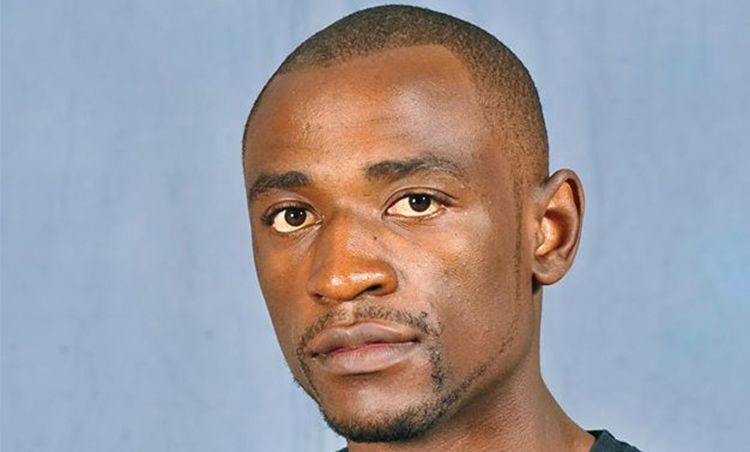
Elroi Yee
Location: Malaysia
Host Organization: R.AGE
Elroi is a multimedia investigative journalist, whose stories have ranged from Indigenous peoples and human trafficking, to refugees. His work has received numerous accolades, including being twice nominated for a Peabody Award, winning five SOPA Awards and seven Asian Media Awards. During his time at R.AGE, the team has won the Kajai Award twice, and was conferred the United Nations Malaysia Award in 2016.
Elroi worked with Puah Sze Ning (activist Fellow) to focus on Malaysia’s Indigenous Orang Asli communities who are moving out of government resettlement schemes and returning to their customary lands. These lands are often exploited by the state and commercial enterprises for profit, leaving little resources for Indigenous communities.
Elroi’s investigations focused particularly on the Orang Asli struggles against logging companies. He documented the detrimental impact logging has on the local environment – and by extension on the Orang Asli’s access to land, water and food, as well as on the health of community members. Alongside his stories, he worked with community journalists to set up a digital map where various Orang Asli villages shared photos, videos and geospatial evidence of logging activity, and to submit this as evidence of malpractice to the authorities.
Article: ‘The Village Journalists of Kampung Ong Jangking’ [January 2021]
Video: ‘Behind the Blockade’ [January 2021]
Article: ‘Logging has destroyed our land, say Orang Asli’ [December 2020]
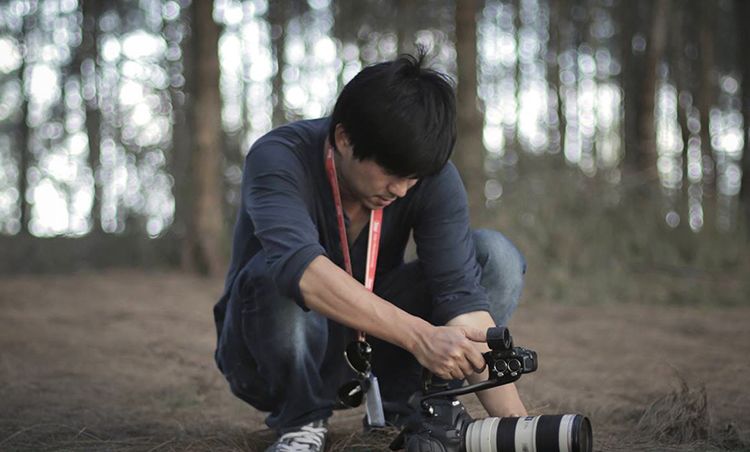


 Built with Shorthand
Built with Shorthand